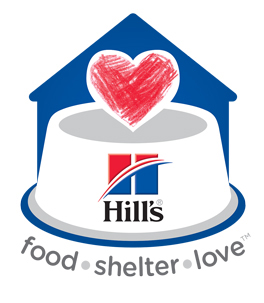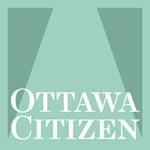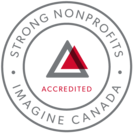|
Advocating for animals during COVID-19... read more |
|||
| If you do not see the full page with images, please click here. | |||
|
The Jane Goodall Act |
|||
|
You are someone who cares about animal welfare: that's why we're excited to share this important news with you. Protections for exotic animals in captivity are set to make great leaps and bounds. Bill S-218, the Jane Goodall Act, spearheaded by Senator Murray Sinclair and legendary primatologist Jane Goodall, aims at extending protections for great apes, elephants and other wild animals in captivity while also banning the import of elephant ivory and hunting trophies. Across Canada, there are 33 great apes and more than 20 elephants in captivity. Building on 2019's S-203 Free Willy legislation that phased out the captivity of whales and dolphins for entertainment, the Jane Goodall Act will:
The Jane Goodall Act will not be the end of captivity for great apes, elephants and other exotic animals in Canada, but it will establish a framework for ensuring that captivity is done in the animal's best interest with a large consideration for individual welfare and species conservation. Sanctuaries such as Fauna may continue their work, including bringing in additional animals if it is in the animal's best interest, and allowed by local jurisdictions. Zoos will contend with increased legal responsibilities towards the animals in their captivity and will face an additional layer of scrutiny via government oversight and licensing requirements. The OHS believes that the best place for wild animals is their natural environment and that where confinement is necessary, animals must be provided with an environment that fulfills physical, psychological and social needs. The Jane Goodall Act is a large stepping stone towards this goal. |
|||
|
2020's Little Victories |
|||
|
It's a prevalent joke, or perhaps a dour observation that 2020 has been a year chock-full of disaster, chaos and all-around misery. Catastrophic wild fires, a global pandemic and swarms of invasive murder hornets have left many us wondering, "What will happen next?" As 2020 crawls to its highly anticipated close, rather than sweating over what the next few weeks may have in store, we’d like to look back at the bright spots — some of the good things that 2020 has brought for animals. Endangered leopards on the rise in China. Across the globe, leopards are on the shortlist for endangered species with their numbers in constant decline, but, incredibly, Northern China is seeing an increase in their leopard numbers — sparking hope for the species. France announces ban on wild animals in travelling circuses. Set to roll out gradually over a number of years, France will be phasing out animal exploitation for entertainment in travelling circuses. A small, but meaningful step towards improving animal welfare. Canadian fur trade in decline. Over the years, Canada's fur auctions have dwindled to a single auction in North Bay that only sold 30 per cent of its furs this year. Many major department stores, Winners being one of the most recent, no longer sell fur. These milestones mark the beginning of the end for particularly cruel operations such as fur farms where animals are harvested for their fur in ghastly, inhumane ways. Kaavan, the world's loneliest elephant rehomed. Kaavan, a 36-year-old bull elephant, was previously kept isolated in a dreadfully inadequate enclosure in Pakistan. Last month, Kaavan was transferred to a sanctuary in Cambodia that will better meet his needs and allow him to live amongst other elephants. Overall, 2020 has been a difficult year, there is no denying that, but it's still important to celebrate the little victories. Even in these trying times, there has still been good news for animals everywhere. And that's something worth celebrating. |
|||
|
Supporting Partners, Strengthening Our Community | |||
|
OHS rescue partners arrive early Sunday morning to drop off cats for spay/neuter surgeries. | |||
|
In June, when it became clear that the effects of COVID-19 would be long-standing and significant, the OHS prioritized strengthening relationships with partners. The OHS distributed microgrants of up to $500 each to 13 partners through our Emergency Partner Support Program. Based on partner feedback about challenges — mainly high veterinary care costs — we realized that there was more to be done.
In November, we relaunched a more substantial program, resulting in grants of $2,500 to each of 22 animal agency applicants. To ensure grant funds were used to help the most animals in greatest need, applicants were required to describe how funds would be used and the number of animals that would be helped. Since this critical program's inception, the OHS has supported animal agencies in need with over $60,000 in grant funds. Through the Emergency Partner Support Program, the OHS has supported a broad range of partners; those that are caring for dogs and cats and rabbits, domestic birds, wild birds, wildlife and even farm animals. We expect the finiancial support will help close to 3,000 animals by the end of the 2020. Birch Haven Rescue and Rehabilitation's founder, Gwen B. indicated the impact of the grant will be "priceless and invaluable" to the dogs and "the additional impact is seeing a great dog adopted to a great home once they have been successfully rehabilitated; thereby not only saving another life, also reinforcing how wonderful rescue dogs are as additions to the family." Grant funds will provide resources to spay/neuter 12 additional cats in the care of Furry Tales Cat Rescue in addition to the usual number they assist each year. Potentially supporting barn cats, cats brought in through TNR programs, cats whose owners are low-income, disabled or senior citizens and those who may need financial assistance to access spay/neuter. Aside from financial support, the OHS has already held five partner sterilization days and sterilized 57 cats for agencies in need who have not been able to obtain these services in the midst of the public health crisis. More dates are being planned as resources allow. Together, we are stronger and can achieve more for our community's most vulnerable animals. |
|||
|
Buddy & Belle: Digby | |||
|
Digby a sweet, nine-week-old kitten needed a safe place to go and he had a LARGE bump on his belly! It turns out he had a hernia, which needed special surgery to repair. He's currently recovering in the care of a loving and experienced foster volunteer. Support from caring people like you is so important... especially after the year we've had! There are hundreds of precious animals at the OHS right now waiting for their Christmas miracle, including Digby. | |||
|
Found a Cat? | |||
| Thank you to our sponsors: | |||
|
|
|||
| Ottawa Humane Society 245 West Hunt Club Rd, Ottawa, ON K2E 1A6 donations@ottawahumane.ca | www.ottawahumane.ca |
|||
|
The Standards Program Trustmark is a mark of Imagine Canada used under licence by the Ottawa Humane Society. |
|||
| Privacy Statement Manage your Email Preferences |








